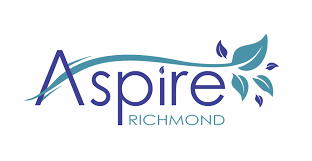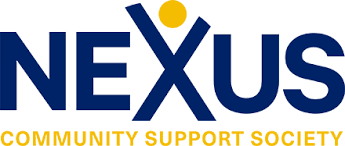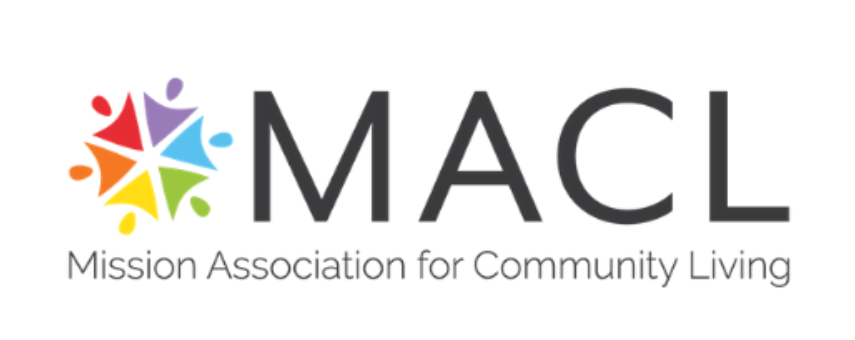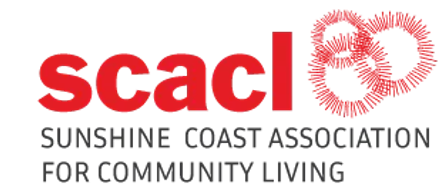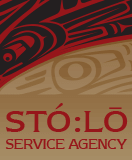The Autism Society of British Columbia (ASBC) was started in 1975 and is a parent based and directed society providing support to individuals with autism and their families in British Columbia and Yukon. We have an estimated 1100 family members as well as corporate, professional and associate memberships. Our Mission To promote understanding, acceptance, and full community inclusion for people with autism in British Columbia while providing support for the realization of the rights and informed choices of individuals with autism and their families.
Founded in 1969 by families who desired alternatives to hospital or institutional-based services, the BC Centre for Ability is known for delivering high-quality community-based services using a family-centred approach, professional leadership, education and promoting the rights of individuals with disabilities to participate as valued members of their communities. The Centre is housed in a fully accessible building in Vancouver, with regional offices in Richmond and the North Shore. The Centre offers lending libraries for therapeutic toys, equipment, books and video tapes; an adaptive computer lab and software for assessment and testing; and a family resource centre with information for families and caregivers.
Terrace & District Community Services is an association of people committed to the social, economic and environmental well being of all citizens of Northwestern British Columbia.
The PDD program, which is part of the Ministry of Seniors and Community Supports, provides supports to adults who have a developmental disability. Six community boards deliver local programs and work with adults with developmental disabilities, their families and guardians to identify needs. The boards also work with local agencies to provide services. The Ministry is responsible for developing a provincial plan and policies, working with the six community boards, allocating funding to the six community boards, and coordinating the delivery of programs and services.
At HOMES (Healthy Opportunities for Meaningful Experience Society), we currently support over fifty individuals in the rolling hills of the Fraser Valley about an hour east of Vancouver, BC. We support individuals in traditional shared homes of four persons, individual homes with one or two persons and we have many Supported Family Care homes. We train our caregivers in a philosophy of Gentle Teaching and our mentoring from John McGee has led to the formation of Gentle Teaching International, which is better known as GTI.
Inclusion BC, formerly the BC Association for Community Living (BCACL) is a provincial non-profit organization dedicated to promoting the participation of people with developmental disabilities in all aspects of community life.
Community Living BC (CLBC) delivers support and services to people with developmental disabilities, children with special needs and their families in British Columbia. It has a board of self-advocates, family and community members, as well as staff located throughout the province. We believe that people with developmental disabilities and their families know best when it comes to their needs, goals and planning for the future.
BCANDS provides a variety of support services and resources to help aboriginal people with disabilities, and others associated with the disabled. Aboriginal people with some form of disability direct and work in the organization, a registered non-profit society with more than 6100 members.
The Stó:lō Nation is the political amalgamation of eleven Stó:lō communities. The Stó:lō Service Agency (SSA) is the service delivery arm of Stó:lō Nation. SSA provides services to the Stó:lō and Aboriginal communities throughout S’olh Temexw.
S’olh Temexw is the traditional territory of the Stó:lō people. According to our swxoxwiyam, we have lived here since time immemorial. The Stó:lō traditional territory extends from Yale to Langley, BC.
The SSA aims to ensure social and economic development within the Stó:lō community through services and programs in the areas of education, human resource development, early childhood education services such as daycare, headstart and family support, elderly care, social development, health services, a dental office, tourism, and land and research and resource management services.
Building Bridges Together – Our mission is to advocate for and build an inclusive and caring community where the empowerment and rights of all individuals are realized.
AiMHi, Prince George Association for Community Living, was formed by a group of concerned parents in 1957 who envisioned “Community Living” for their children. Today, AiMHi is a non-profit agency funded primarily by Community Living British Columbia. AiMHi provides a wide range of services to children, youth, adults, and families. These services include supported living options, employment services, family support services, life skills teaching programs, and a variety of community programs.
Bethesda (Aramaic for “Place of Mercy”) began its vision of helping individuals with disabilities and their families in January 1971, when parents, disabled people and interested others gathered for the 1st Annual General Meeting. Primarily, Bethesda supports individuals who have developmental disabilities. About 265 Individuals and Families receive support.
The Chilliwack Society for Community Living is a voluntary, non-profit organization whose goal is to promote and enhance the quality of life for people with developmental disabilities. To achieve this, the Society is mandated by its constitution and by-laws to provide an array of services and supports, including various community living arrangements. (For the purpose of this document, community living arrangements can be defined as any community based living option (from the full spectrum of alternatives available to all citizens) in which an individual with a disability lives with or without support, either paid or voluntary).
Inclusion Langley Society is a registered not-for-profit Society and charitable organization governed by a Board of 10 Directors elected from the organization’s membership. The Board is made up of family members, self-advocates, local business people and other interested community members.
The MSA Society for Community Living is a not-for-profit agency founded on July 8, 1957 by a group of local parents who could not find appropriate services for their children with developmental disabilities. The Society is governed by a voluntary Board of Directors who are elected by the general membership. The annual general meeting of the Society is held each year in June.
Fort St. John Association for Community Living A non profit society Working with individuals, families and the community; we educate, advocate and provide quality services for those with developmental disabilities to ensure opportunity in all areas of their lives.
Vela Canada are a non-profit society that provides information and mentoring to individuals with disabilities and their trusted others to take greater control of his/her life by exploring ideas and options that can lead to customized, inclusive and creative supports and services. This can be done by forming a Microboard™; and/or accessing individualized funding.We are available to assist you to learn about and explore your options. If you decide to move forward, we are also available to assist throughout the process with information and guidance.
Services for families with children who have special needs
Jewish Family and Child Service is committed to supporting children with developmental challenges to maximize their opportunities for success and independence. Our SupportAbility provides a range of case management services to families of children with developmental disabilities and works with parents to enhance their children’s quality of life. Case management services include:
-
assessment of the child’s and the family’s needs in order to access appropriate resources, services and supports
-
development and coordination of a support plan
-
provision of support, advocacy, counselling and education to families
Our clients are families in the GTA and York Region, who have children up to the age of 18 who are living at home and have, or are suspected of having, developmental disabilities. Referrals are accepted directly from the family, other social services agencies, schools and community programs.
The SupportAbility helps families make connections to appropriate services from community agencies, schools, medical professionals and government programs. We provide current information on resources, government funding and funding from other sources, respite care, and educational and recreational services (including one-to-one counsellors for children attending summer camp or school break programs). Parent support groups are offered at different times throughout the year.
Inclusion Canada is a Canada-wide association of family members and others working for the benefit of persons of all ages who have an intellectual disability. Founded in 1958 by parents of children with intellectual disabilities who wanted supports and services within the community instead of in institutions, Inclusion Canada has become one of Canada’s ten largest charitable organizations, and has grown into a federation of 10 provincial and three territorial associations comprising of 420 local associations and over 40,000 members.
Inclusion Alberta (formerly Alberta Association for Community Living)
Inclusion Alberta (formerly Alberta Association for Community Living) is a family based, non-profit federation that advocates on behalf of children and adults with developmental disabilities and their families. Together, we share a dream of meaningful family life and community inclusion for individuals with developmental disabilities. As an advocacy organization we support families and individuals in their desire to be fully included in community life.
The Saskatchewan Association for Community Living (SACL) is a non-profit organization that ensures citizens who have an intellectual disability are full, active and valued members of society, and that they have worthwhile opportunities and a range of choices in all aspects of life.
Community Living – Manitoba is dedicated to the full inclusion in the community of persons of all ages who live with an intellectual disability.
The goal of Community Living Ontario is that “all persons live in a state of dignity, share in all elements of living in the community, and have the opportunity to participate effectively.” Community Living Ontario envisions a society where everyone belongs, has equality, respect and acceptance. This gives people a sense of self-worth and opportunities for growth. The gifts, uniqueness and innate value of each individual are celebrated, supported and acknowledged as essential to the completeness of the whole community.
The Quebec Intellectual Disability Society
The Quebec Intellectual Disability Society rallies, informs and equips those who want to make Quebec a more inclusive society, where everyone has a place and can flourish. More than 80 organizations and associations, over 100 employers and thousands of families from across the province have already joined the movement. You are all we are missing…
The New Brunswick Association for Community Living
NBACL is a provincial, voluntary, non-profit organization that works on behalf of children and adults with intellectual disabilities and their families. NBACL supports families, provides training and education, does research, provides inclusive recreation and leisure opportunities and more.
Best Buddies is a nonprofit 501(c)(3) organization dedicated to enhancing the lives of people with intellectual disabilities by providing opportunities for one-to-one friendships and integrated employment. Best Buddies programs engage participants in each of the 50 United States. We have accredited international programs on six continents with additional country programs under active development. Our six formal programs – Best Buddies Middle Schools, High Schools, Colleges, Citizens, e -Buddies® and Jobs – will positively impact more than 300,000 individuals this year.
The American Association of People with Disabilities
The largest national nonprofit cross-disability member organization in the United States, dedicated to ensuring economic self-sufficiency and political empowerment for the more than 56 million Americans with disabilities. AAPD works in coalition with other disability organizations for the full implementation and enforcement of disability nondiscrimination laws, particularly the Americans with Disabilities Act (ADA) of 1990 and the Rehabilitation Act of 1973.
National nonprofit organization dedicated to educating parents and pediatric professionals about the early warning signs of autism and other developmental disorders.
The Prince Edward Island Association for Community Living
The Prince Edward Island Association for Community Living aims to strengthen capacities of communities to include and support people with an intellectual disability and their families in all aspects of community. We formed our group over 50 years ago to improve the quality of life for all Islanders with an intellectual disability.
The Newfoundland & Labrador Association For Community Living (NLACL)
The Newfoundland & Labrador Association For Community Living (NLACL) is a provincial advocacy association dedicated to developing communities that welcome persons with developmental disabilities. This organization has 18 local voluntary associations that provide support in rural areas throughout Newfoundland & Labrador. This association is also one of twelve provincial and territorial associations that are affiliated with the Canadian Association for Community Living (CACL).
“To provide opportunities for persons with a developmental disability to experience a full life in as many aspects as they so choose. We will do this by providing supports and services to the best of our ability, either alone or in partnership.”
inclusion Powell River is a leader and a resource in supporting and valuing everyone in community living. The organization is accredited and accountable to the members. Children, individuals, and families have choices and power in decision-making. Individuals that we serve have friends with rich personal support networks. The employees are well trained and professional. We are recognized for our high standards both locally and nationally. There are cooperative efforts in the community to reduce barriers to access for all.
Dawson Creek Society for Community Living
Dawson Creek Society for Community Living assists people with disabilities to become full community participants through training, education, support, and advocacy.
Elk Valley Society for Community Living
Hope Association for Community Living (Tillicum)
LNV offers a variety of services. Listed below is comprehensive list of services we offer our clients. For more information please contact us for more info
L’Arche Greater Vancouver is a non-profit organization dedicated to creating homes and day programs in which people with and without developmental disabilities live, work and discover faith together. We live together as an intentional community. With over 40 years of experience in fostering inclusion, understanding and belonging, L’Arche is committed to the physical, spiritual and emotional growth of men and women living in our homes and those sharing their lives with each other.
Kimberley Society for Community Living
Milieu Family Services has been a provider of valued services for individuals with varying developmental abilities within the lower mainland for over 20 years. Established in 1989, Milieu has experienced steady growth and has established a reputation for providing quality services. Currently, Milieu operates Staffed Residential homes located throughout the lower mainland, Home Share supports, and a variety of Daytime Services; Community Inclusion, Customized Employment, and Self Employment support to self-advocates.
Nanaimo Association for Community Living (NACL
Is a non-profit society dedicated to supporting people with developmental disabilities. We are run by an Executive Director, who is responsible to a Board of Directors. We have proudly been accredited by the Commission on Accreditation of Rehabilitative Facilities (CARF) since 2005.
Southern Okanagan Association For Integrated Community Living
The Membership, Board of Directors, Staff, and Associates of the Society shall enhance, empower, and support both collectively and individually, every person with special needs to achieve his or her potential and to access and enjoy the same opportunities, rights, responsibilities, and quality of life as an equal member in our community.
Offers a variety of programs and services dedicated to children and youth with specific needs including acquired brain injuries, intellectual disabilities, mental health, physical disabilities, complex health care, and youth justice issues.
The Burnaby Association for Community Inclusion (BACI)
The Burnaby Association for Community Inclusion (BACI) has dedicated fifty years to supporting children, youth and adults with developmental disabilities in becoming fully participating members of the Burnaby community, and in pursuing their interests and dreams. BACI provides a broad range of programs and services including infant development, child care, adult day programs, supported residential facilities, skills development and advocacy to over 600 individuals with disabilities and their families.
The Victoria Association for Community Living
The Victoria Association for Community Living supports people with developmental disabilities by nurturing their ability to choose, promoting inclusion in the community and creating a sense of belonging.
Spectrum Society for Community Living
Spectrum Society for Community Living is a Vancouver registered non-profit society and charitable organization, established in 1987 to develop community-based services for people with disabilities. Our services have expanded over the years. We travel British Columbia to deliver community living workshops through Spectrum Learning and publish community living books and DVDs through Spectrum Press.
The Sunshine Coast Association for Community Living (SCACL)
The Sunshine Coast Association for Community Living (SCACL) is a non-profit society, registered under the Societies Act of British Columbia. As an agency with charitable status, we seek to provide effective, efficient and responsive service to the persons we support. People with developmental disabilities and their families living on the lower Sunshine Coast (Langdale to Egmont) have turned to the SCACL for advocacy and service since it’s incorporation in 1957. The membership of the Association elects a Board of Directors at the Annual General meeting held in June of each year. Growth in service has been extensive in recent years, both in numbers of persons served, diversity of programs offered and the sophistication of care required. The program staff of the Association are members of Canadian Union of Public Employees, (C.U.P.E.). Management staff are exempt, with the Executive Director being the sole employee of the Board.
The Delta Community Living Society
The Delta Community Living Society is a non-profit community-based organization that provides support to adults with developmental disabilities and their families. Our core services are: residential community living training and support recreation and personal development family support Funded primarily through service contracts from the Ministry for Children and Family Development, DCLS is an example of high standards and innovation. DCLS provides active leadership and advocacy for the Community Living movement in B.C., shares best practice with other service organizations, participates in policy dialogue with government and educates the public about the vital needs of the people we support.
The Kootenay Region Association for Community Living
The Kootenay Region Association for Community Living recognizes and supports the rights of all persons to a quality life in the community.
The Campbell River and District Association for Community Living
The Campbell River and District Association for Community Living provides advocates for local services to support people of all ages with special needs, their families and caregivers.
Nanaimo Association for Community Living
Nanaimo Association for Community Living supports and advocates for citizens with developmental disabilities and the people that care for them by promoting inclusion through various residential and community opportunities, activities, and services.
Williams Lake Association for Community Living
A non-profit organization established in 1961 and registered under the society’s Act. We are governed by a volunteered Board of Directors made up of members of the community. Our funding comes from the Ministry for Children and Family Development, and we receive donations from community service clubs. Cariboo Recyclers provides some revenue through the sale of goods.
The Shuswap Association for Community Living (SACL)
The Shuswap Association for Community Living (SACL) has been providing services and support for people with intellectual disabilities and their families for more than 40 years. SACL became a registered society in July 1963. Originally the members started a school in the basement of a local church until 1967, when the Salmon Arm school board took over the education of children with intellectual disabilities.
We support people with intellectual and other disabilities and their families, across their lifetime. We are here to help them live meaningful lives and be active in all aspects of community life.
North Shore ConneXions Society (ConneXions)
North Shore ConneXions Society (ConneXions) began in 1956 when a group of parents came together to advocate for better social and educational services for their children with special needs. We have been dedicated to doing just that for more than 50 years.As an agency, the interests and needs of the individuals we support are the foundation of every program and service we offer. ConneXions believes in enabling self advocates and their families to direct the services that they are accessing. We do all that we can to provide them with the resources they need to make informed choices.
The Society For Students with a Disability (SSD)
Welcome to the Society For Students with a Disability (SSD). We are a subsidiary organization under the auspices of the University of Victoria Students’ Society (UVSS). We represent the interest of a wide range of students on the University campus who self-identify as having one or more disabilities. We aim to create spaces that are welcoming, and inclusive where students can relax, socialize, and share their experiences.
Cowichan Intercultural Society
A declaration of fundamental principles for building a just, sustainable, and peaceful global society for the 21st century. Created by the largest global consultation process ever associated with an international declaration, endorsed by thousands of organizations representing millions of individuals, the Earth Charter seeks to inspire in all peoples a sense of global interdependence and shared responsibility for the well-being of the human family and the larger living world. The Earth Charter is an expression of hope and a call to help create a global partnership at a critical juncture in history.
TaxWise specializes in helping people with disabilities/medical conditions, and their caregivers, get the maximum tax refund they are entitled to. We’ve helped thousands of Canadians get what they are entitled to from the Canada Revenue Agency.
This guide from TurboTax explains the disability tax credit, the approval process, and how to claim the credit when filing your taxes.
The Kettle Advocacy Service provides much needed information, support and representation to resolve income, housing and family law problems. Last year, there were over 7,000 client contacts with our office. Advocacy Services staff assist individuals to access necessary income supports, disability benefits, debt relief programs and mental health supports and provide information and representation to individuals on residential tenancy and child protection matters. Other programs include a Mental Health Drop-In Centre, Housing Assistance, On-site Health Clinic, and Outreach Services.
To promote meaningful inclusion for people with intellectual disabilities and their families into all aspects of community life by providing advocacy, public awareness and education, community capacity development, and program support.”
The Basics About Disability Benefits (USA)
Social Security Disability Insurance (SSDI) and Supplemental Security Income (SSI) programs provide assistance to people who meet our requirements for disability.
Medicare & Social Security: Benefits for Disabled Individuals
You can get financial help from Social Security and Medicare if you’re permanently disabled or if you have Lou Gehrig’s disease or kidney failure. To be considered “permanently disabled,” your doctor must confirm that you are unable to work for at least 12 consecutive months. Being “unable to work” means you cannot perform your job functions because of the disability, and you cannot find a new line of work because of age, education, or impairment. You must follow your doctor’s prescribed treatment plan to continue to qualify. It’s a good idea to keep up-to-date medical records.
Qualified disabled individuals can apply for Social Security Disability or Railroad Retirement Board (RRB) disability to recover lost wages. Once you qualify for Social Security Disability or RRB benefits, you can also apply for Medicare Disability benefits to cover your hospital, medical, and/or prescription drug expenses.
Extra Help with Medicare Prescription Drug Plan Costs
Medicare beneficiaries can qualify for Extra Help with their Medicare prescription drug plan costs. The Extra Help is estimated to be worth about $4,000 per year. To qualify for the Extra Help, a person must be receiving Medicare, have limited resources and income, and reside in one of the 50 States or the District of Columbia.
Disability.gov’s Guide to Transportation
Transportation plays an important role in enabling people with disabilities to travel and live independently. Depending on where you live, your destination and your physical needs, transportation choices might include paratransit, accessible taxis, public transportation or volunteer drivers from nonprofit organizations or local government agencies.
Buying a Home | Department of Housing and Urban Development
HUD’s mission is to create strong, sustainable, inclusive communities and quality affordable homes for all. HUD is working to strengthen the housing market to bolster the economy and protect consumers; meet the need for quality affordable rental homes; utilize housing as a platform for improving quality of life; build inclusive and sustainable communities free from discrimination, and transform the way HUD does business.
Guide to Moving for the Disabled
If you have a disability and are planning to join the millions of Americans who move each year, you may benefit from moving advice that addresses your specific needs.
Following is a resource guide created for people with disabilities and designed to provide moving advice that touches on their unique needs when changing residences.
Home Modifications to Promote Independent Living
These tips provide people with disabilities and their caregivers with guidance in managing communications, equipment, pets and home hazards. The materials were co-authored by the American Red Cross and Department of Homeland Security and FEMA
Fire Safety & Disabilities Guide
According to FEMA, each year approximately 17,500 people are injured and 3,400 die because of fire.1 There are dangers associated with fire for everyone, but people with disabilities face unique challenges in these emergencies. As FEMA notes, people with disabilities may have more difficulty escaping during a fire. In addition, some disabilities may prevent them from taking actions ahead of time without the help of a caregiver, friend or relative.2
Luckily, there are many resources available to help people with disabilities take precautions in the case of fire at home or work. Below is a resource guide created specifically for people with disabilities, with recommendations on how to prevent, prepare and recover from fire. Always remember your local firefighters are good resources for information.
Home Accommodation Cost Guide for the Disabled
The Individualized Funding Resource Centre (IFRC)
The Individualized Funding Resource Centre (IFRC) Society was developed to help people succeed on the Choices in Support for Independent Living (CSIL) Program and other individualized funding programs in British Columbia. Paul Gauthier, founder of the CSIL program now has a place to share his knowledge, and experience. The IFRC is committed to providing supports that will allow individuals to fully participate in their communities.
The Individualized Funding Resource Centre understands that managing individualized funding can be overwhelming and challenging for many people with disabilities. Too often, individuals accept the alternative, because of a lack of information or support. We can provide that information and support to ensure success and independence!
For Americans that are living in Canada
Disability insurance can help protect you and your family from an unexpected illness or accident that leaves you unable to work and earn an income.
Generally, disability insurance replaces between 60% and 85% of your regular income, up to a maximum amount, for a specified time if you:
- temporarily can’t work
- are permanently disabled due to an injury or illness
Permanent refers to the nature of the disability. It does not mean that you’ll get benefits for the rest of your life.
Many employers offer disability insurance. However, you can get your own disability insurance plan through a life and health insurance agent.
If you’re self-employed, you can also get disability insurance that will cover many of your business expenses if you’re unable to work.
Kootenay Advocacy Network / Take Action for Special Kids
Offers information, mutual support and advocacy assistance for families of people with developmental disabilities.
Empowered Living Services Inc.
By providing Skill Development, Community Inclusion, Employment and Goal Setting services for all ages and abilities, Empowered Living Services will enable everyone to reach their goals and live a happy, rewarding and meaningful life
Cresteramics Society For Handicapped
Cresteramics Society For Handicapped is a privately held company in Creston, BC
Community Integration Services Society
Community Integration Services Society is committed to enabling individuals with disabilities to become active members of their own communities.
There is a common misconception amongst people without disabilities that people with physical disabilities can’t – or shouldn’t – drive. After their initial invention in the late 1880s, the automobile became widely available in the 1920s with Henry Ford’s assembly line. Still, the popularity of owning cars didn’t explode in popularity until the mid-1950s. It is only in recent years that car companies became more interested in making their vehicles accessible for people with disabilities.
However, people with disabilities have been modifying cars with their own inventions since the early 1900s. Frank E Fithen is considered the earliest pioneer of creating and using adaptive mobility equipment for motor vehicles. Fithen’s arms were amputated after a childhood accident. As a young adult, he redesigned his car with a series of rings on the steering wheel to accommodate his residual limbs. Fithen then drove across the contiguous United States, showcasing his driving skills at fairs and carnivals. At the time, many drivers didn’t like to go over speeds of one mile per hour. Fithen broke distance and speed records traveling at 58 miles per hour. Around the same time, future Judge Quentin D. Corley adapted his car’s steeling wheel with a steel hoop, enabling him to steer with the hook on his left hand. Coincidentally, Corley was injured in a childhood accident also involving a train, similar to Fithen’s. As a result of the accident, Corley lost most of his left forearm, along with his entire right arm and shoulder.
We cover a broad range of subject areas while remaining 100% dedicated to the field of intellectual disabilities, with modules on subjects such as Active Support, Person-Centered Approaches Thinking and Planning, Challenging Behavior, and Supported Employment, just to name a few.
Learning is made easy with a range of multimedia tools that engage the user. This includes interactive graphics that explain abstract concepts, short films with closed captions, animation, and audio that is synced to all written content.
DCCI Scholarship for Canadian Students with Disabilities
Disability Credit Canada’s mission is to help disabled Canadians receive the full benefits and credits they deserve from the Canadian government.
As a Disability Tax Credit & CPP Disability firm we work closely with disabled Canadian and their families and we recognize the unique challenges they face.
Disability Credit Canada is committed to helping young disabled Canadians achieve their goals in higher education or vocational training towards employment and we are proud to be offering the “DCCI Scholarship for Canadian Students with Disabilities”
























